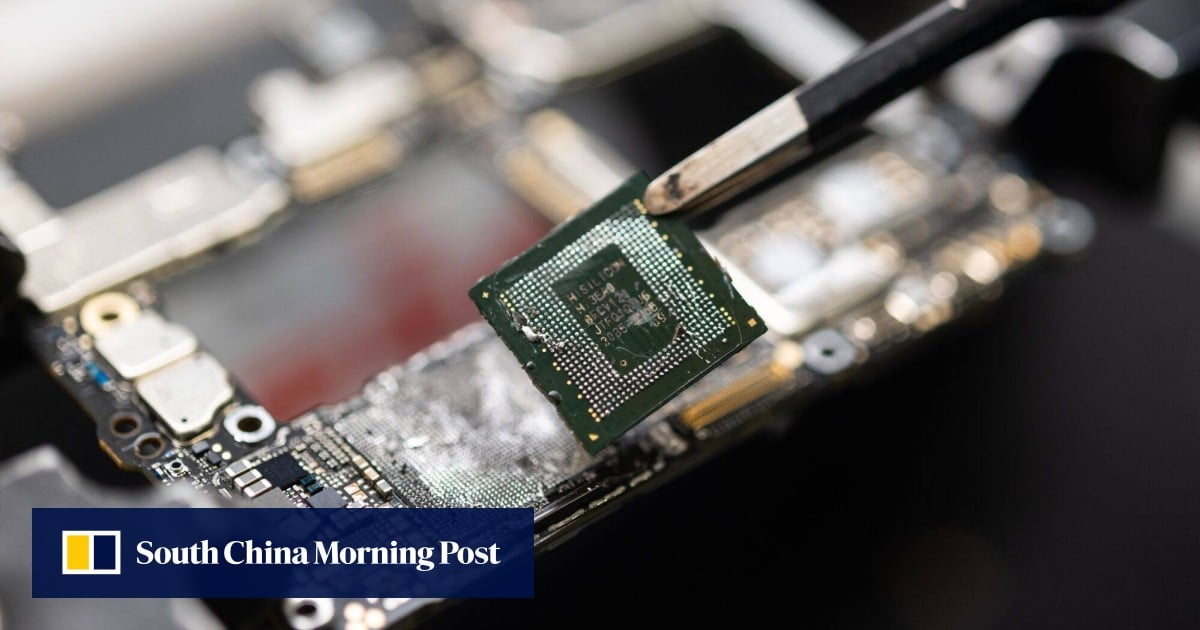


A chemical-mechanical polishing (CMP) machine for integrated circuits developed by a group of scientists from Tsinghua University’s Department of Mechanical Engineering is expected to take first prize in the State Technological Invention Award.
China seeks closer US links on scientific research, use of AI in education
The machine, which uses chemical and mechanical processes to polish a wafer surface to nano-level accuracy, is one of the five key technologies in the integrated circuit manufacturing process. In 2015, the same team delivered China’s first CMP machine, marking a milestone in domestically produced high-end integrated circuit equipment.
The shortlist also highlights several achievements in communications technology. A study of key 5G technologies and engineering applications by researchers from industry giants such as China Mobile and Huawei Technologies was shortlisted for the top prize.
Projects that focused on the environment and ecology are also prominent on the shortlist. Since China launched a national campaign in 2013 to clean up air pollution, concentrations of fine particulates of less than 2.5 microns – known as PM2.5 – have dropped by 56 per cent, according to a report in China Daily in 2022.
Research into understanding the causes and management of PM2.5 pollution, and an invention to prevent and control groundwater pollution in the Beijing-Tianjin-Hebei area were both shortlisted for first prize.
There are five categories: the State Natural Science Award; the State Technological Invention Award; the State Scientific and Technological Progress Award; the State Preeminent Science and Technology Award; and the China International Science and Technology Cooperation Award.
In the first three categories, the average success rate from nomination to initial shortlisting ranges from 18 to 24 per cent, according to statistics compiled last Thursday by the mainland social media account “kejiangzaixian”, which analyses China’s science awards.
The projects also face further competition. In the case of the State Technological Invention Award, for instance, five inventions have been selected as candidates for the 2023 first prize, but only one or two of those inventions are usually awarded the top prize.
A researcher whose project made the list, who works for the Chinese Academy of Environmental Planning – which is affiliated with the Ministry of Ecology and Environment – told the Post that this was only the initial evaluation announcement and that the research team was still waiting for further notification.
Three studies were initially listed as candidates for first prize in the State Natural Science Award, two of which are related to advanced materials.
A group of physicists at the Chinese Academy of Sciences could win top prize for innovations in calculating and predicting the topological properties of materials, an advance that could make searching for topological materials much easier.
China’s Xi wants market-ready scientific research – and singles out 2 provinces
Another team from Yanshan University in the northern province of Hebei has been recognised for creating a class of materials that are harder and tougher than natural diamonds.
Several biologists from Zhejiang University are likely to take first prize for their contributions to the study of brain mechanisms underlying emotions and social behaviour.
In technology, Chinese researchers and engineers are being recognised for major advances in areas like agriculture, energy, mega-infrastructure and ecology.
A system designed to ensure safe drinking water also made it onto the shortlist.
In the geology category, a technology to help engineers analyse the stress tolerances of large rock formations to determine stability for mining activities, as well as advances in deep exploration and onshore seismic exploration were expected to take top honours.
Meanwhile, as China transitions to green energy, a technology for the safe and efficient development of offshore wind power is also considered a candidate for first prize.
In chemistry and materials, discoveries such as a new membrane technology for seawater desalination and a high-performance membrane for lithium-ion batteries also made the list.
Key technological innovations in the production of edible and medicinal mushrooms, genetic manipulation of watermelons, and green and intelligent production of polyester fibres have also been recognised.
The awards were established by China’s State Council in 1999 to promote the development of science and technology. But over the past two decades, the award system has been mired in controversy, with some criticising it for not being scientific and transparent enough.
In 2011, the science ministry revoked the second place prize in the National Scientific and Technology Progress Award category after an investigation revealed plagiarism and falsified data in the design of a refrigerant compressor.